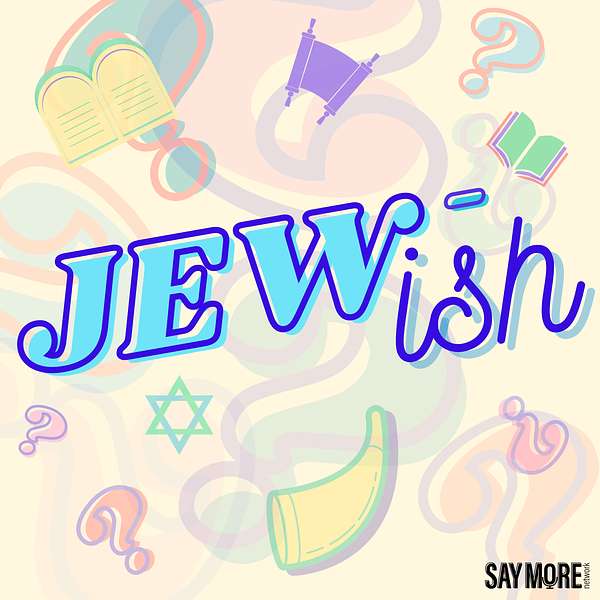
Jew-ish
What is being "Jewish"? What are Jews? What do Jews believe? What do Jews do? What's happening in those mysterious synagogues with all that weird language (it's Hebrew)?
Jew curious?
The thing about being Jewish is, you can't tell us apart by looking (well, not always), we often look the same, dress the same, work and play and eat right alongside our non-Jewish counterparts, and yet, as a teeny tiny minority--only 0.2% of the global population, and 2-3% of the U.S. population--plenty of people have probably never met a Jewish person, or if they did, they didn't even know it.
For as much as we share (and it's probably way more than you think), somehow, moving through the world as a Jew really is different. Everything looks different through a Jewish lens, even for those who aren't particularly religious, the ones who describe themselves as "Jew-ish."
But honestly, none of this is really that mysterious. And, if you're curious or confused, you can always just ask the internet--or, now you can also come here and check in with your new Jewish friend.
So, if you have questions about being Jewish, we're here to introduce, explain, ask alongside, and generally demystify Judaism for Members of the Tribe (Jews) and goyim (non-Jews) alike, exploring and showcasing the infinite ways there are to be Jewish.
Jew-ish
New Jew, new you! But same eternal soul
Rabbi Eliana Fischel might not claim the title "The Cool Rabbi" (or think it very likely any rabbi would), but the Washington Hebrew Congregation Associate Rabbi does a lot of the fun stuff. She runs the young professionals group, works with LGBTQ and Jews of Color cohorts, and is involved in something like 40 conversions a year.
Who knew there were so many!? Well, no one, unless the convert themself chooses to talk about it. Rabbi Fischel explains why, and gives some insight into what she's witnessed in many of these deeply personal journeys. She busts some myths we grew up with (are we really turning converts away three times?), gives insight and identifies some of the trends she's seen and learned about over the years of helping people find themselves, and their Jewish soul.
Don’t worry, you won’t come out of this a shiny new Jew, or have any Sunday school flashbacks (unless you liked Sunday School?), but we’ll have a few laughs, and hit some of the nuts and bolts and basic questions you probably have about conversion....or, at least, that I had.
GLOSSARY
Minhag: A tradition that through long accepted use and custom has taken on an importance and force almost as strongly as law.
Goy/goyish: non-Jew and non-Jewish (adjective), respectively.
Israel: The word, meaning "to struggle with God," was bestowed on the biblical character Jacob as his new name after wrestling with an angel all night in a match that left him permanently injured. In Judaism, it is used to refer the Jewish people, “Am Yisrael," meaning People of Israel, and the Land, "Eretz Yisrael."
Bubbe: Also spelled "bobe," Yiddish for "grandmother."
Seder: From the Hebrew word meaning "order," the ceremonial meal that takes place at Passover and is conducted in a specific order alongside the retelling of the story of the Exodus of the Jews from Egypt. The ritual meal is believed by many to have been Jesus' Last Supper in Christianity, and Passover takes place in the spring, generally very near Easter.
Links:
https://www.reformjudaism.org/
https://www.whctemple.org/learn/adult-learning/classes/12-jewish-questions/
One of the books I always assign is To Life by Harold Kushner, and I reread it every few years And every time I read it by the end of the book I'm like God, I should convert to Judaism. This thing is great, so I recommend for that book. It's a little dated but it's beautiful, yeah.
Hannah Gaber:Welcome to Jew-ish. The show for Jews, non-Jews, the Jew- curious, just all the varieties of Jewishness. If you've been listening so far, you've heard a name come up again and again, but until now you have not gotten to hear her voice. I'm talking about Rabbi Eliana Fischel of Washington Hebrew congregation. Rabbi Fischel jumped on board with the show really early on and has been super supportive and instrumental in hooking me up with some of the voices you've already heard, or that you will hear, or that you'll go back and hear, ahem. But today it's her turn. I'm bringing her in at this point in our conversion miniseries to bust some myths and give a little gravitas to what we've talked about so far. We'll have a few laughs, we'll hit some of the nuts and bolts and basic questions you probably have about conversion-- Or, ok, fine, that I had about conversion. And, as always, don't forget to check the show notes on this and every episode. For a glossary of terms you might hear. K. Here's the show.
Rabbi Fischel:So, hi, I am Rabbi Eliana Fischel. I am an associate rabbi at Washington Hebrew congregation in Washington DC and in Potomac, Maryland. I've been a rabbi here for five years. I am a graduate of Hebrew Union College Jewish Institute of Religion, which is the Reform Jewish seminary. I was in the New York campus. And here at Washington Hebrew, I run 2239, which is our 20s and 30s young professional community, as well as some communities for new moms and pregnant women and an LGBTQ cohort, Jews of color cohort, and I spend a lot of time with our teens.
Hannah Gaber:That is a lot. So basically, you're the cool young rabbi is where we're at.
Rabbi Fischel:Cool is a relative term when rabbi is followed by it. But sure, sure, You're the rabbi for the young kids I don't know about that I don't know about that.
Hannah Gaber:Well, ok, so we're here today because you were very enthusiastic in my questions about conversion And I know that it's a little bit different for reform Jews And that's, I guess I said the sect and my mom corrected me What does it call? It's not called a sect in Judaism. It's called a sect or a denomination, denomination, strain or stream. I think she said too. I don't know. Anyway, lots of words, yeah, it's all good. So I grew up always hearing that there that first of all, judaism does not proselytize Like it's forbidden from doing that. We don't go out and solicit people to join. That's just not a thing Jews do. But I've also heard or I was also raised hearing that you're actually supposed to turn converts away the first three times that they ask ostensibly because being the chosen people is actually a huge burden or whatever it is. Is that real? Is that true? Do we still do that Like? do you know where that comes?
Rabbi Fischel:from Sure. So the image I have of Jews turning away a potential convert three times is Charlotte from Sex in the City When she shows up with platters of food and she's like, please, I just want to be Jewish.
Rabbi Fischel:So I think that's probably how I was introduced to it when I was a kid, but for one, that's just. That's a minchag. Which is a minchag is a custom. There's no law that says you have to say no to someone who wants to join Judaism. Off of a little bit of research, it seems like it's coming from the book of Ruth, where Naomi told Ruth to turn away.
Rabbi Fischel:Three times Ruth kept saying Naomi I'm going to come with you, i'm going to come with you. And Naomi said no, go away, like go live your life, and said it three times. And so there's perhaps a connection there. But this is really coming from custom And I think it has helped in ways to make Judaism feel elusive and to feel elite. But actually the Reform Judaism steered clear of that in the 1990s. In the 1990s we took a big push. The Union for Reform Judaism did this explicitly, saying actually we really love what we have to offer And Judaism is pretty amazing And it gives a lot of meaning.
Rabbi Fischel:It gives a lot of spirituality to people's lives And we think we have it pretty great. And so, while we're not going to go out and proselytize, we're certainly going to tell people how great we think we are and how great Judaism is, and definitely someone who wants to join our faith, absolutely we're going to welcome them with open arms And we are not going to make any more barriers than already necessary to become Jewish And that also goes for interfaith families as well that anyone who wants to join our faith, as someone who is Jewish adjacent to a partner is going to be welcomed with open arms as well. We're not going to put up barriers to make that more difficult for them.
Hannah Gaber:I love that. That's so fun And I'm so happy that you said Jewish adjacent, because I think even my friends often, once they start to get curious or ask me questions about my life, they even start to, I think, think of themselves as Jewish adjacent which is lovely and sweet, and I was always raised to be like, oh yeah, i mean I have, as in most places there's not a ton of Jewish people around, numerically.
Hannah Gaber:So yeah, all my Goyesh friends, come join me for Hanukkah and come for a Seder And I'll make you salmon, because you're a pescatarian And they love all that stuff. But so that does raise the question so is there an official process, like do you have to? Is it becoming Jewish? like getting a degree, do you have to take certain classes and then you're in, or can you sort of self-identify as Jewish and then, ta-da, you're Jewish.
Rabbi Fischel:So The process to become Jewish is different depending on the sective Judaism that you're in, and even different depending on the congregation you're in, and even different depending on the rabbi that you're working with. So at Washington Hebrew we do around 40 conversions a year which most of our congregation doesn't really know about. So we take conversion really seriously that it's up to the person who's converting to sort of share that with everybody. we're never gonna share who we're working with.
Hannah Gaber:It's like personal right. It's like kind of a private, intimate thing.
Rabbi Fischel:It's really personal and in our tradition it says actually that you're not supposed to publicize a convert, because once they become Jewish, they are as Jewish as Moses, as Jewish as you and me, and should never be sort of asked when they became Jewish. So that would be seen as sort of inappropriate or disrespectful right. No, no, no, they were at Sinai, just like I was. Yeah, so the way that we think about conversion is actually that you've always had a Jewish soul. We're just giving it a little bit of like, light and water and watching it grow. That's from. Those are words from my amazing colleague, rabbi Aaron Miller, that I use all the time.
Rabbi Fischel:That's so nice, what an image, yeah, really beautiful. And so what we do here at Washington Hebrew is it's a really personalized study that takes about a year. They meet with a rabbi or canter once a month for almost an entire year. We assign or what I do is I assign a book at every meeting. I sort of have a list that I go through, going from the most general to more specifics, and then, as a student gets involved, they start asking their own questions and I give them books that personalize to them. I also assign an experience that being Jewish is so much more than belief or faith or what we think. It's really about behavior, right, that's why we're not really a religion, we're not really an ethnicity, we're not really a culture, we're kind of everything in between, yeah, and so I don't think you can really become Jewish unless you've tried lighting Shabbat candles, unless you've tried some version of kosher, unless you've tried some version of adult study and Torah study. And what I say to my students is I don't expect you to do this as a Jew all the time, right, because I don't want to give higher expectations to you than my typical Joju congregant, but I do expect you to try it and to see what's meaningful for you and to see what sticks, and so each month they get these assignments and we talk about them together.
Rabbi Fischel:Also, those meetings are also pretty pastoral. I'm not a counselor, but they take on that role too, because it's a huge identity shift And especially to take on a minority identity is really challenging sometimes, especially when people are coming from families of different faiths or families of no faith, and how do you approach those conversations? So a lot of the meetings are like that as well. We also highly recommend that they take a class we provide called 12 Jewish Questions, which is a version of introduction to Judaism but is for everybody. It's for people who are starting a Jewish journey, but also people who are reconnecting to their Judaism as an adult.
Rabbi Fischel:So we have congregants in there who are like 80 and have never studied before but just retired and want to learn about Judaism, as well as people who are just starting on their Jewish path. It's a wonderful course And then at the end of all this sort of around the 10-month mark, we have a conversation that's like how do you feel? And before that, at any point, if someone says you know, i actually think this isn't for me great. They haven't wasted my time. The point is for people to find their place and their spirituality and their religion. I'm not in the business of making Jews right. We don't proselytize.
Hannah Gaber:We're not selling you something I'm not selling them anything.
Rabbi Fischel:If it's not right, it's not right. I do ask them not to ghost me.
Hannah Gaber:I'm like if you could just let me know that you're going to go.
Rabbi Fischel:Sometimes they do, but it's okay. And then we decide to bring them to Bate Deen. So Bate Deen sounds really intimidating And I always try to say that it's not Technically, it's a court. So it's three really intimidating.
Hannah Gaber:Bate Deen means house of religion, right.
Rabbi Fischel:House of judgment, So it's literally the words you use for a court And it's three highly educated Jews. So we always use three clergy or our education staff And it's really for us, it's really just a conversation. We're not quizzing people. We are just talking to them about their spiritual journey and their Jewish journey, Questions that would have been really hard a year before but now actually are just part and parcel of their life, right About how they engage with their life, how their relationship with God, their relationship with holidays, their relationship with Shabbat, what they struggle with.
Hannah Gaber:What would be like an example question?
Rabbi Fischel:An example question would be how has your relationship with God changed from before this process to now, and what do you sort of hope for your relationship with God in the future? Another question would be you know you've learned a ton over the past year classes, books, whatever. What have you loved? What have you like? Yes, that is what I want. And what are you still really struggling with? Because part of being Jewish is taking on this name, yisrael, which means to struggle with God. We love a struggle, so what do you struggle with?
Hannah Gaber:We really do.
Rabbi Fischel:Why do we like this? So what are you struggling with? After that, batey and we take them, they also have to write sorry, they have to write a spiritual autobiography or a personal statement as part of that as well. We then take them to the mikvah at Yisrael. here in Washington DC has a beautiful, beautiful mikvah and they immerse three times and then we do a welcome ceremony for them And, as we say, they come out of that water and they are as Jewish as anyone.
Hannah Gaber:Wow, i feel like I don't know. Maybe you've heard this before. I hope not. Maybe probably. I feel like almost that the people who have done that sort of formal education like oh shit, are they more Jewish than me? Cause. I don't know the other, like I have not, Although I sit here saying that and I'm like I haven't had those conversations. Then it's like, okay, but they all didn't have to learn Hebrew and then stand in front of a congregation and like forget half of their Torah portion And chant Torah when you're 13 and so awkward.
Rabbi Fischel:Oh the misery, the worst, the worst, so, actually. so most of our conversions are actually not part of a couple, but the ones that are right, where they are engaged or going to be married or very serious with someone who is Jewish. We always talk to the Jewish partner and I always say you're about to become 10 times more Jewish than you ever imagined, because so many Jews sort of leave their Judaism in a pediatric realm right, they do the really embarrassing thing of standing up there at the Bema at age 13 and then never really come back to it. And then here is this partner that they love, who's engaging with Judaism in an adult way, with really intense questions and not just like learning about Judaism separate from ourselves, like a graduate program, right, but really about like, what does it mean for us and for me and for how I'm growing, and that is gonna engage you in a different way. And so, yes, we're creating lots of Jews, but also we're creating lots of a lot more adult Jews.
Hannah Gaber:More Jewish Jews, more Jewish Jews, more Jewish.
Rabbi Fischel:Jews for sure.
Hannah Gaber:Well, that is so cool And it's like I never really thought about it really in that way, although and honestly you know, it was my friend Nancy who made me think about it. Like I got her the Jewish book of why for Hanukkah a couple of years ago And then I was like, ooh, i maybe should also have a copy of this. I bought myself one too, yeah, yeah. And, like you know, maybe I haven't opened it or whatever, we'll see, maybe I will this year, any day might be the day Yeah.
Rabbi Fischel:Who's to say. One of the books I always assign is to life by Harold Kushner, and I reread it every few years And every time I read it by the end of the book I'm like God I should convert to Judaism. This thing is great, so I recommend for that book. It's a little dated but it's beautiful That sounds awesome. Okay, I'll put that on my list of things to do, my ever-growing list as I go through this podcast process.
Hannah Gaber:Absolutely, so that is really cool, so it's not. You know you can't fail out right, like you don't get to the bait din and then answer their questions wrong and they're like get out.
Rabbi Fischel:No, certainly not. We would never. I would never bring anyone to bait din who I wasn't sure was gonna was good to go.
Hannah Gaber:You mentioned that people obviously come from all different backgrounds and faiths. Is there like a specific or a particular like faith or background? you see a lot of Like. Do you see like? are they 90% Catholic? Are they 90% Episcopalians? You know what I mean. Like, I'm so curious, Yeah.
Rabbi Fischel:I would say I have no numbers for you. This is just what I see in my office is that the majority, if they come from a faith, the majority are coming from Catholic.
Hannah Gaber:Interesting From Catholicism Is that because of that, you know, we share the shame. Basis of that.
Rabbi Fischel:It's a little bit. It's more that they really love ritual but don't love dogma, and so that's where you get liberal Judaism right. It's like we understand ancient tradition, we understand ancient ritual and how powerful it is and we don't wanna put it aside, we wanna put it at the forefront and we're not going to mandate that your religion contradicts the life that you lead, and so I think that's probably why we get that background so much. And then not a faith, but huge majority are coming from the LGBT community. So I would say most of my conversion students are coming from LGBT community And again, i think that's from lots of different faiths are really being told that religion and their identity don't mesh, and then finding liberal Judaism and realizing that actually it can be there And not only can your identity and your religious identity mesh, but your religious identity can actually lift up your other identities.
Rabbi Fischel:And that's been a really positive experience to witness.
Hannah Gaber:That is really really cool. Yeah, i mean, that's really interesting that you say that. I mean as a sort of obviously kind of a tongue-in-cheek person, just in general. like you know, whenever I met, for example, like Italian Catholics in like the Northeast, and they're like oh, i'm Catholic, you're Jewish, and we're like same same.
Rabbi Fischel:We always joke about that.
Hannah Gaber:It never about how it's like oh yeah, you get it. the shame, you know, you know, and like we say that flippantly, but like there is. I'm always curious about, like having dealt with people from so many different backgrounds. are there things? and I'm not saying like shame is an integral part of Judaism or Catholicism? I'm just saying it's like it makes a lot more sense to think about it.
Hannah Gaber:Don't add her, don't add her God, just what we need. But I like that. It makes a lot more sense when you point out that it's like there is almost like a code of conduct right It is. It's like the day to day, like the candles on Shabbat right, like redo your Torah study on Saturdays, like that makes a lot of sense with like you know, it's the same as the Eucharist, where it's like this is just what we do, and so that bond of like timed, regulated stuff makes a lot of sense. Do you feel like there are other like tenets or behaviors in Judaism or whatever that you see echoed in or mirrored or like parallel in certain other faiths? Like I mean, i guess I'm thinking about, for example, women becoming, you know, bishops and pastors in the Episcopal church And like are there, for example, maybe evolutions of other religions?
Hannah Gaber:that you sort of are like oh yeah, we're kind of dealing with that too in Judaism.
Rabbi Fischel:Yeah, so it's interesting, in this space of conversion, i hear the opposite right, i always hear the differences and not the similarities And honestly, i wish I was more. no, i knew more about world faiths. It's one of the things on my bucket list. I do think that, as places are as certain you know, sects of Christianity are becoming more liberal, that we're having more and more similarities. I also think in general. I have found that, in general, people who identify as religious and. I identify as religious. I think often people think performed Jews don't.
Hannah Gaber:I'm a rabbi.
Rabbi Fischel:I identify as religious. That makes sense. Have more in common with other people who identify as religious, almost no matter what religion. That is right, that there's this underlying idea that something else is guiding our life, that there's a different type of meaning in our life where we can speak a similar language, even if our religion is right or wrong.
Hannah Gaber:Yeah, yeah, I mean, I think that that's one of the things that I really wanna like just put out there. Is that the language of I almost said the language of faith, but I think it's really more the language of spirituality.
Hannah Gaber:The language of spirituality is almost universal, I mean, even when we have conversations about like Christ is love it's like yeah, if we're gonna talk about universal love, we're talking about the same thing here, that we're all sort of of that spirit And like that's the point right, and so it's interesting. I'm curious everyone I'm sure has their own, i know, everyone I know has their own specific, unique journey. But are there themes? are there why? Like, do you notice a certain theme around people's? why that they come to Judaism?
Rabbi Fischel:for Yeah, i think there's a few things. One is intentional community, i think, more than God, more than spirituality, especially post pandemic, people are looking for other people, but other people not in like a happy hour schmooze way, which is fine, that's fun.
Hannah Gaber:We do that too, by the way. Yeah, yeah, that's great.
Rabbi Fischel:But more in a really in depth like who can I have deep conversations with? Who can I talk about mortality with? Because suddenly this is all in our face all the time And who's asking those questions not answering, but who's asking those questions is religion, and so I think that seems to be a big theme For Judaism in particular. The thing that is like sort of the clincher that everyone's like whoa is that we have the ability to question right That a Torah study in Judaism is gonna be mainly questions, not a lot of answers.
Rabbi Fischel:Never is it gonna be at least in liberal Judaism, i would say, is it gonna be like this passage is saying this and this is the message for our lives and no other message is allowed. It's much more well, what message are you finding right? And I'm gonna come in with my own ideas as the teacher and rabbi of the class, but it's gonna be much more organic about who's in the room and who's bringing themselves to this text and what questions are being asked. I have a lot of stories of people who are like the Bible study that they grew up with is just so dogmatic.
Rabbi Fischel:And so this is what it means, and if you don't like what it means, then you're not in the fold, And that really doesn't fit with people or the people that I'm talking to.
Hannah Gaber:Yeah, and it's so funny because, even as you're saying that, obviously whoever's listening can't see this, but I'm over here like wincing And I think that's the stuff that makes Judaism like you were saying. maybe it's a cult, yes, culturally yes, and religiously yes, But I think really more so it's a worldview, And it's that worldview of like to me, expelling someone for not adhering to the dogma, as opposed to embracing and answering their questions in ways that feel satisfying to them. That, to me, is like. so it's not just antithetical to what I understand religion is supposed to accomplish, but it's also just counterproductive. right? If you want someone to be in the fold, wouldn't you just answer the questions, Right?
Rabbi Fischel:exactly, exactly. And I also wanna be clear that there are some forms of Judaism that do have clear answers and clear in or out language, but certainly not the form of Judaism that I prescribe to, nor that I teach. Yeah, and not the form that I was raising, and this is sort of where, like all my curiosities are coming from.
Hannah Gaber:Is that it's like I almost wanna say it's like the invisible way of being that is just being Jewish, where it's like I was raised with all this stuff And to me I'm like I can't imagine the hurt that it would cause someone to be raised in a community and then told well, if this one piece doesn't align with you, then I guess you don't really belong here.
Rabbi Fischel:Yeah, and what's amazing about that is that it can be it's sort of a double-edged sword, because once a lot of these people find that there's such a relief like, oh my goodness, this community is gonna open to my questions, there's actually probably no question that I can ask. that's gonna be offensive wild right.
Rabbi Fischel:Because if you approach with curiosity, find by me, and then on the other side of it they realized that they weren't raised that way, right, and then that's the sort of the healing and hurt that happens of wait so I could have been. I'm missing out. There's a loss here of not growing up with like the booby who makes chicken soup and had me with open arms, and that's part of that conversion narrative that's really hard to teach. It's actually why a lot of the books I assign are narratives and not like history books, because I sort of wanna provide them with authors who can be their booby, who can be their Zadie, who can be their Jewish family members, even when they have great relationships with their family members. Right, they're on a different journey.
Hannah Gaber:Well, and also having Jewish family is different, because I'm sure, like I, don't, have a well, i do have a Catholic stepmom and I just worship her and love her and adore her Not worship, even appropriate in this context, but I adore her, or quite appropriate, but sure, or critically, but indeed. And I would call her, you know, Jew adjacent really because she's deeply curious. She actually formally educated herself for quite a while after sort of taking an interest in us and how we were raised and she's a lovely human, you know.
Hannah Gaber:But yes, like her, the way that she moves through the world is different and it's graceful and it's gracious in her own ways And I believe that those reflect the values she was raised with And those are instructive to me too. But it's definitely not the same as like we consider. I mean, we all just sit around the table and talk over each other and it's just everything all the time, and like it can be a lot, don't get me wrong, for sure, for sure. But like you know, it's like even when I moved here and you know my auntie is properly a booby as well, she's the patriarch of the family. Now She's the eldest, my mother's eldest sister, and you know I was living in the basement, like you do, and the interrupting it was just like causing me anxiety and she would just laugh so hard and be like, did you forget? Like this is just what we do.
Hannah Gaber:This is a Jewish-y thing. We just interrupt each other because I had a thought and it's about your thought, and now we're exchanging thoughts in the middle of our thoughts.
Rabbi Fischel:Yeah, for sure, for sure, Absolutely, and it's a form of. I mean, what gets me about that is like it's actually a form of respect And for us right, that like, yeah, i'm so excited about what you're saying, i literally cannot wait until you stop talking for me to say what I want to say.
Hannah Gaber:Totally, and I was raised that way, or I just was that way, i guess, and then, as I got, interestingly when I went to college and I lived in Savannah, so I was in. Georgia for 10 years. That was really the place where people started just being like, oh, she ever does this interrupt.
Hannah Gaber:And I was like how do I make people understand that I'm doing it because I'm excited And that it's because I love you and I care about what you're saying And I'm so interested And it fully took me, i would say, into the last maybe three years to like find, even psychological, like research and literature on that, where it's like especially for people with ADHD, where it's like, no, no, I'm participating, Yeah for sure, it sounds like. I'm not listening. It's the opposite.
Rabbi Fischel:But I'm here, i promise, i'm here. It's the opposite.
Hannah Gaber:I'm telling you, I'm listening right now.
Rabbi Fischel:Yeah, for sure, i'm listening so hard, for sure.
Hannah Gaber:Okay, so that was kind of a digression, all good, but you know that's what we do, part of it. Oh my gosh, this is a funny question that I wrote down and I don't know if this is even, have you noticed, like an order of operations. That's like a something like a going to Jewish pipeline. Are there certain commonalities that you see in people's journeys that it's like, for example, like Laurel, where it's like I started as Catholic and then I made my way through Episcopalian and then I made my way to Judaism.
Rabbi Fischel:Like yeah, that's more rare actually of like trying out different things. Yeah, i sort of assumed before I got into it, before I really, you know, became part of the pulpit, that that would be the case, that everyone would sort of try out different things More.
Rabbi Fischel:So it's like If they're raised with some faith, they go far away from the faith really are on their own and then find Judaism right, like they're really like sort of out in the outskirts of secular life and are not and find this the other way. And the other one is, if you're not a lot of our students are not raised religious at all And same thing that they're always sort of missing something. They feel like they're missing something. They're always sort of jealous of the people both at religious school, at Jewish religious school, but also at CCD and at other types of Sunday school right, and are just sort of trying to find it and want it back. But usually it's not like a papery of different religions. I would say the main commonality is that someone invited them to a holiday or Shabbat.
Hannah Gaber:That was going to be my next question, like since we're not out there proselytizing, like how the heck do people find it in the first place?
Rabbi Fischel:Yeah, So I would say Shabbat. I would say Shabbat Passover or High Holidays, that those three things are what people have said Like. so I went to a Seder for the first time and just it blew my mind that like here was this big ritual and there was 30 people like with four different tables out in the living room and we drank four bottles of wine And we drank glasses, glasses.
Hannah Gaber:We drank four glasses of wine.
Rabbi Fischel:And somehow talked about this oppression and freedom. That happened thousands of years ago but somehow made it relevant to us today And there was a lot of joy when those topics are so dark. And how else could we do that? And how else can I engage this way? Oh my God, just everything, yeah. And also for High Holidays as well. That for whatever. However they did, they got to a synagogue for High Holidays and it was overwhelming to them. Overwhelming in a great way, and sometimes in like a scary way. Yeah.
Hannah Gaber:I mean, it is there the days of awe for a reason? And I certainly like you know, i guess as you get older as a Jewish person, maybe this is common. Like you know, hanukkah is your favorite holiday when you're a kid because there's presents involved obviously. And then, of course, passover is everybody's favorite, because we get to eat for hours and hours and hours and it's the best, but, like, yom Kippur is my favorite holiday in the sense of like what I guess spirituality and religion in its best form accomplishes for us, which is renewal and introspection and tapping into that like super deep honesty of you.
Hannah Gaber:can you know you can not fool, but like you can present however you want in this world. But where we have trouble then, as humans, is when we've bifurcated our identities in that way where our external self and our internal self aren't necessarily aligned. and you can never not feel that, and if you don't have the words for it, even if you don't necessarily know what's happening, if you are at discord with yourself, it always, it always hurts you and it causes problems in relationships and everything. And Yom Kippur is the moment of like you know better. Yeah, absolutely, and you can always come home.
Rabbi Fischel:Absolutely, Absolutely So. Yom Kippur is also my favorite holiday for the same exact reason that it just feels like so the ritual is so it's not obvious, right Like it's brilliant is what?
Hannah Gaber:it is.
Rabbi Fischel:But to be able to sort of to really engage with ourselves in a deep and meaningful way, to engage with our mortality in a deep and meaningful way and say that, yeah, we don't know what the year is gonna, is gonna be, and so I better figure out the way in which I want to behave right now, because there, who knows And what's wild and I'm not saying this is for everyone, i'm not generalizing that much, right? But if you were to ask sort of our everyday congregate, right? If you were to ask, like what's the deal with high holidays with, like most Jews, they would be like what's?
Hannah Gaber:the deal with high holidays.
Rabbi Fischel:It would be like really long services or like we got to get out of there and then you get a bagel right. And, to be fair, I think services here at Washington Hebrew very engaging and in your local shawl too, very engaging and beautiful.
Hannah Gaber:Support your local shawlyism, my goodness.
Rabbi Fischel:And what I hear from our conversion students is like I was sitting in this sanctuary, i didn't know anyone, i sat alone and I just started to cry and I don't know why. And it's such a different experience, right, such a different experience of tapping into that emotional religious space that I actually think Jews, who are born Jewish, we do really poorly right, like we actually do sort of have decor, I mean, even if we're going to interrupt each other all the time and we don't show emotion with our religion a lot right, like we don't connect that way a ton. Of course something's going on in your life. You have someone who's suffering, right, you've experienced a death.
Rabbi Fischel:You are going to connect that way in the high holidays and then you can't really contain it right. But I think that's an example of one of the strengths our community gets by including people who are choosing Judaism is that they engage with our religion in such a different way and with such an amazing openness that I think we can all learn from them for that.
Hannah Gaber:That is. I also love that perspective of like we're also better for bringing in people who have different relationships with our same quote, unquote, same faith.
Rabbi Fischel:Absolutely, absolutely.
Hannah Gaber:You have, as a person who has done been a part of at least some part of 40 of these this year, as a person who has, as you say, dunked plenty of new Jews, is there something that feels new and special every single time? Do you have a favorite moment, even if you're thinking of a specific one with one convert, or is there a favorite part of the process that, like every time it happens to you, it feels new and special?
Rabbi Fischel:Yeah, i think there's two. The first is our first meeting, where every single person who comes to us or comes to me and to my office or my Zoom room thinks that they are the only person in the world who is finding Judaism, they are alone in this, that they're kind of weird, because even though America is a religious country, we find religion weird And it's like the most. It is so brave that they email our assistant and say I think I want to do this, what do I do? And then get on our calendar and do it right. And the moment when I hear their story and then also share with them that they're not alone and there's this class of 70 people that they can join and that we do about 40 of these a year and that they realize that there's a whole community out there of people who are also finding Judaism and are loving it. Like their eyes light up And it's so exciting to see someone. Immediately. They haven't met anyone new besides me, but they immediately don't feel alone And I can see it. I can see it on their face And that's unbelievably moving. And then the other one that I love. The other moment I love is on the other end of it.
Rabbi Fischel:I love mikvah. I love ritual bath. It's a beautiful, beautiful ritual that we do in Judaism that liberal Judaism is now kind of reclaiming And it is an amazing moment of transition and of identity claiming. And to have to explain that to someone who's going through it and to explain that this is sort of a rebirth right. There's a reason religion uses water to cleanse you and to transition you from one identity to the other right. That is sort of part of a rebirthing process. And to see that work for someone right, To see this ritual that we've been doing for thousands of years, to see them really feel different and really, really, at that point we say like it's just a stamp.
Hannah Gaber:You're Judaism right.
Rabbi Fischel:Like you've done the work you're a. Jew, like we just have to put a stamp on you. We don't actually put a stamp on them.
Hannah Gaber:We don't. We also just have to be clear We have to have to, but it's a lovely thing, but it's lovely.
Rabbi Fischel:And you can just see. You can see how meaningful it is for them to go into the water and then to come out different Yeah, different Yeah.
Hannah Gaber:I love it. I love it And well, and that's the thing I think a lot of non-Jews can understand too right, the idea of it's the same as the baptism, and concept of you are cleansed. you are now here, you are fresh in us, you are one of us and you are welcome, exactly, exactly, i love it.
Hannah Gaber:Well, is there anything else that you want to add or that should be just understood, or that you would love to clarify, perhaps about any of the process, or just general? you know what I'm calling reform Judaism, but I noticed that you're calling liberal Judaism, which is interesting, i mean, i can talk about that. That's another episode which I would love to do For sure.
Rabbi Fischel:I'm sure I'm happy to say reform Judaism too.
Hannah Gaber:I'm very proud of reform Jew.
Rabbi Fischel:Please, yes, i guess. I guess last thing I'd say and I'd hope it would be clear already is that this process is not scary. The process of becoming Jewish is not scary. It's actually a really deep, engaging process of figuring out who you are right, who the person is. And, yes, it's learning about Judaism, it's learning about prayers, it's learning about Shabbat, it's learning about holidays, but really it's about learning about yourself and about who you are as a person and how this religion can help you be a better person, a more meaningful person, a more intentional person, and about learning about yourself and who you want to be.
Hannah Gaber:And I think I'm just going to add to that a little bit, even though it's supposed to be your thoughts. No, please please. I think the other thing too, that I remember saying to my friend Nancy, for example, the other thing is that there's no wrong answers and there's no wrong path right.
Hannah Gaber:You can go to every single class and then, be like actually I'm going to skip the bait game. Thanks for everything. You could go to none of the classes and just do all the readings. You could simply have the one conversation with Rabbi Fashal. There's no wrong path. If what you're seeking is a deeper connection to your own sense of I think you said it best like really just intentionality and meaningful engagement with your world. How can I just be a better person and you're finding any guidance in that in studying Judaism at all? You're doing it right, yeah absolutely, absolutely.
Rabbi Fischel:I love that.
Hannah Gaber:Well, amen Beautiful.
Rabbi Fischel:Awesome amen. Thank you so much for everything.
Hannah Gaber:Yeah, for sure This has been Jewish. Thank you so much for listening. If you like what you hear, please follow or subscribe. wherever you get your podcasts, please do tell a friend. Word of mouth is the absolute best way to get the word out, as it were. Make sure you go back and listen to some of the other episodes in the conversion series, especially with what Rabbi Fashal had to say. It might all be a little more clear now. and stay tuned. We've got at least one more for now and, don't worry, my Jewish mother is coming up. So thank you so much for listening and please subscribe for more. Jewish is a same-or production.
Podcasts we love
Check out these other fine podcasts recommended by us, not an algorithm.
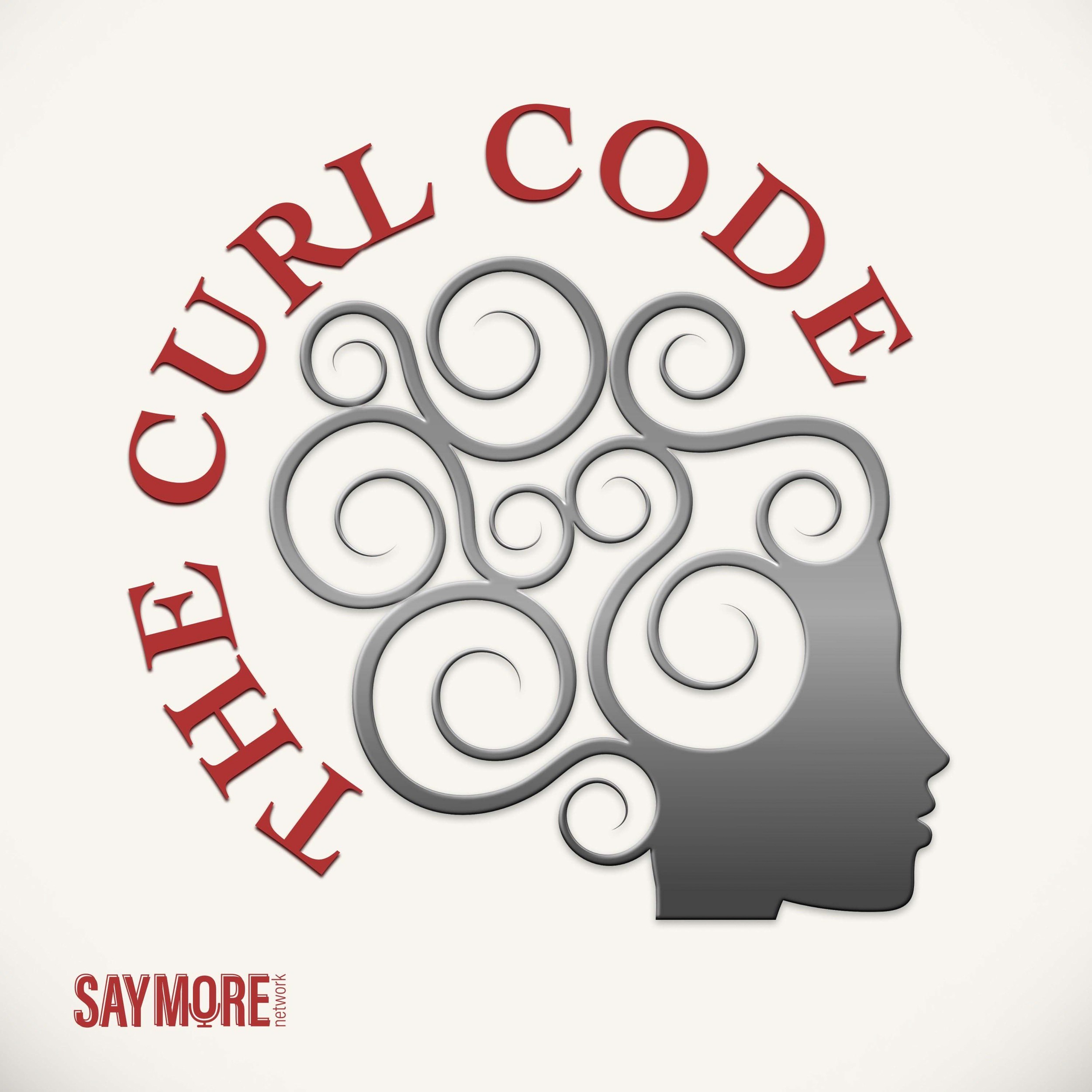
The Curl Code
Say More Network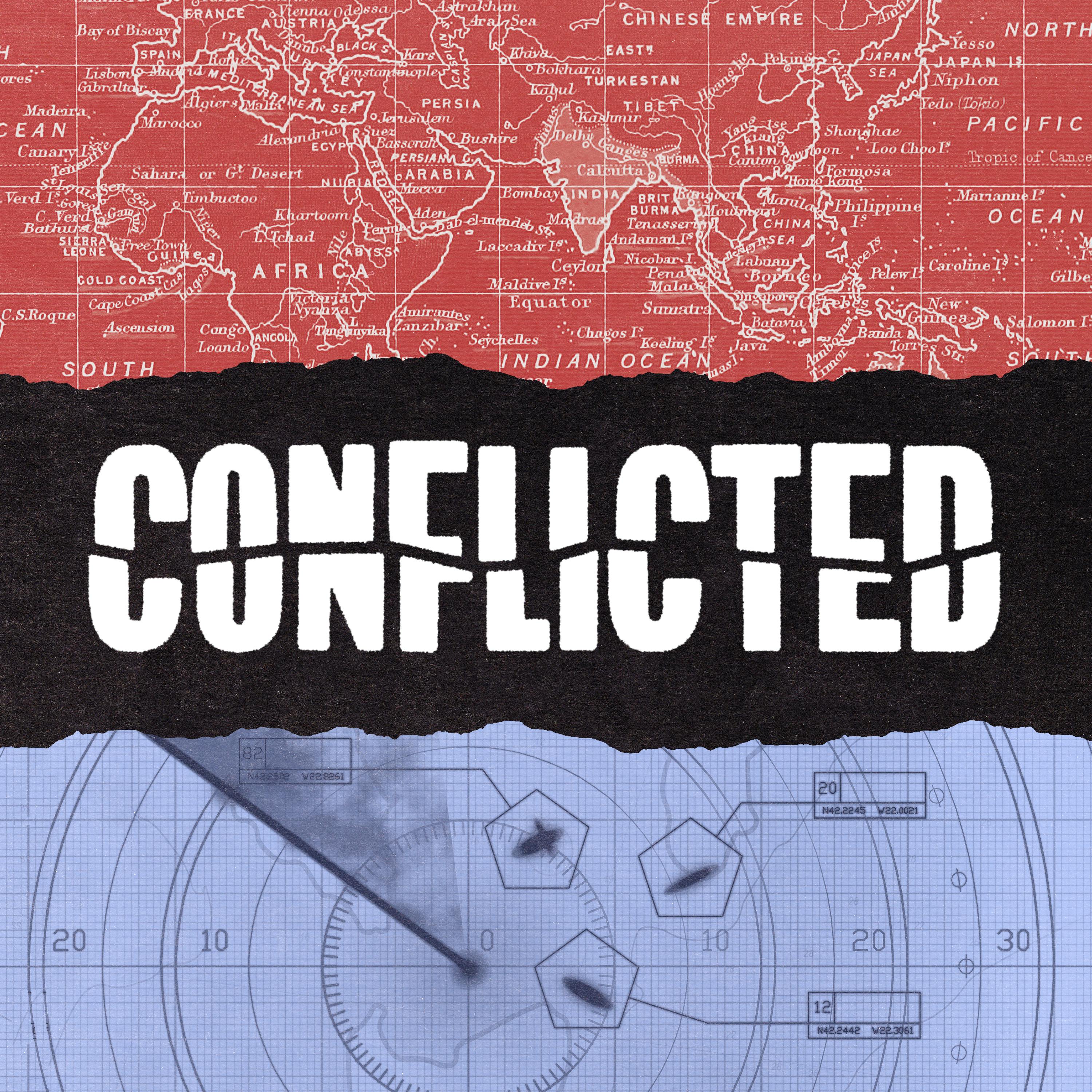
CONFLICTED
Message Heard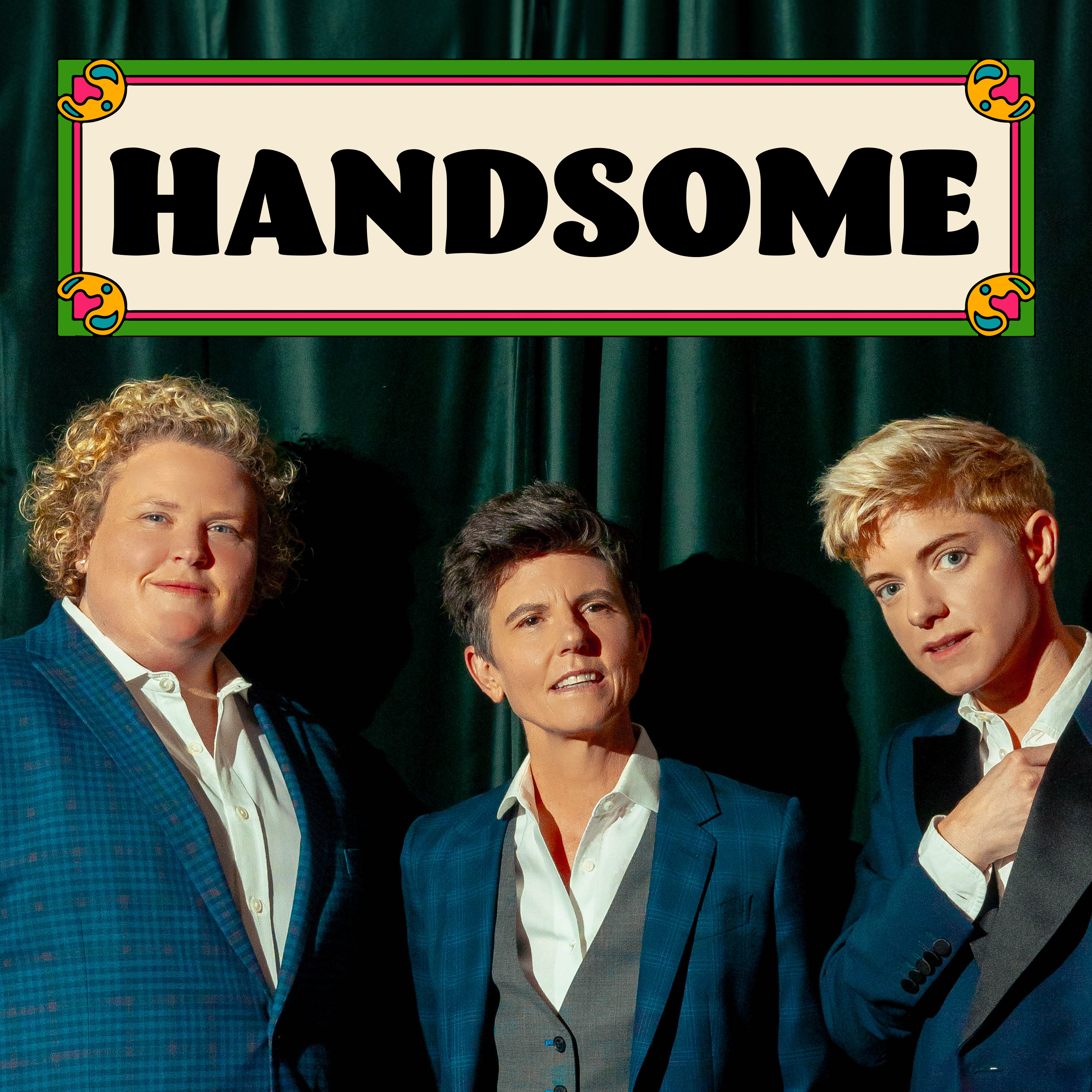
Handsome
Headgum
The Daily Stoic
Daily Stoic | Backyard Ventures
If Books Could Kill
Michael Hobbes & Peter Shamshiri
Stoic Coffee Break
Erick Cloward
Wiser Than Me with Julia Louis-Dreyfus
Lemonada Media
Maintenance Phase
Aubrey Gordon & Michael Hobbes
Serial
Serial Productions & The New York Times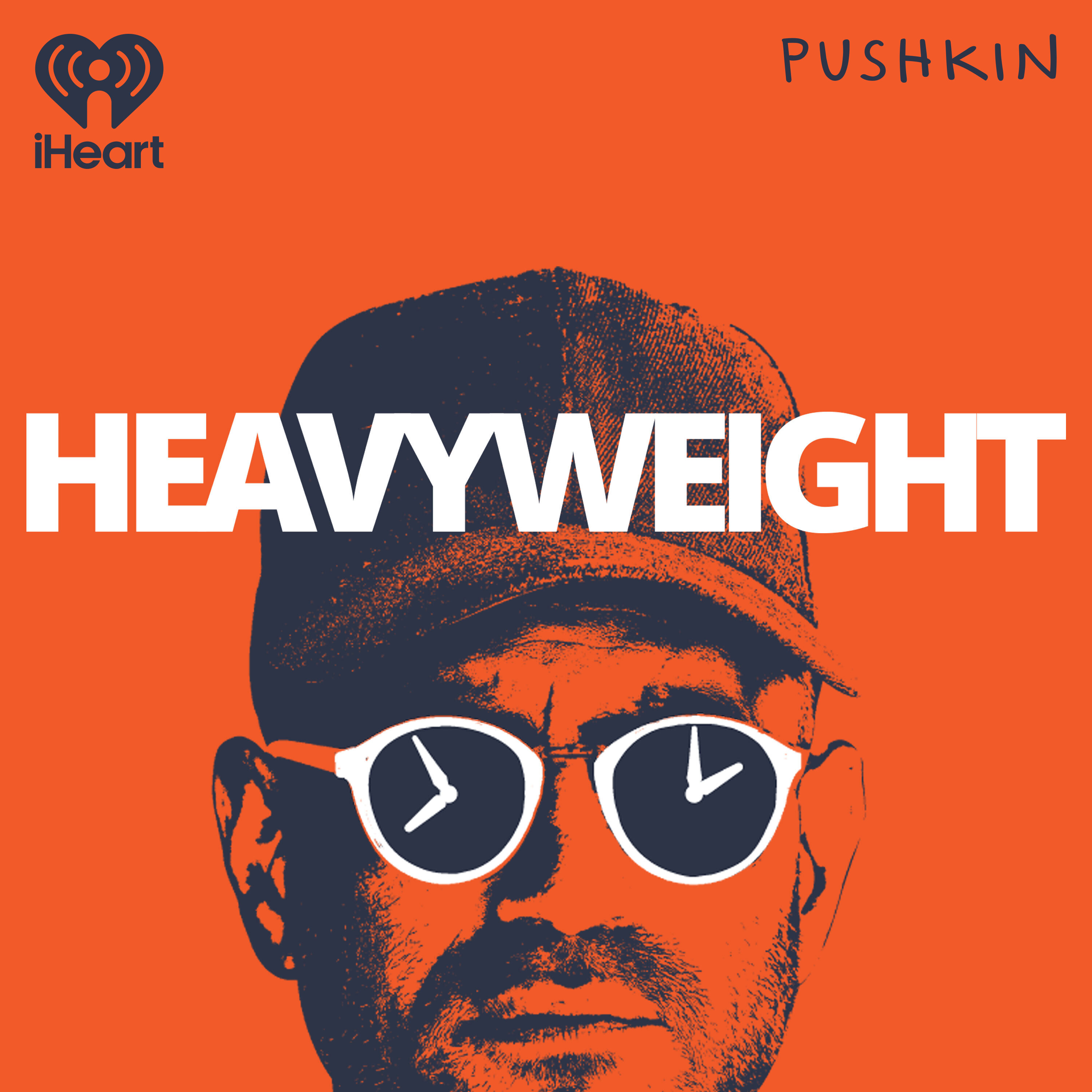
Heavyweight
Pushkin Industries
Radiolab
WNYC Studios
Throughline
NPR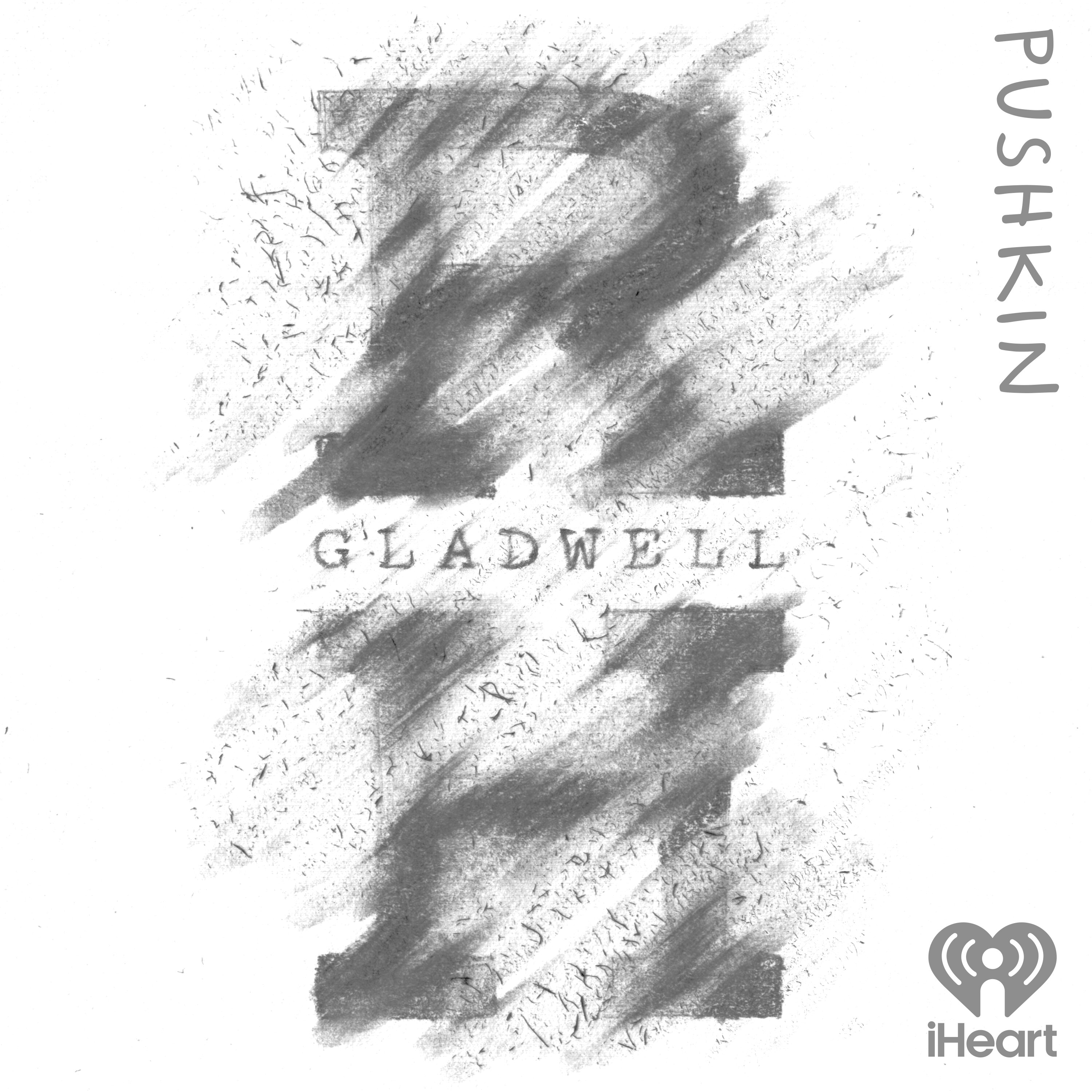
Revisionist History
Pushkin Industries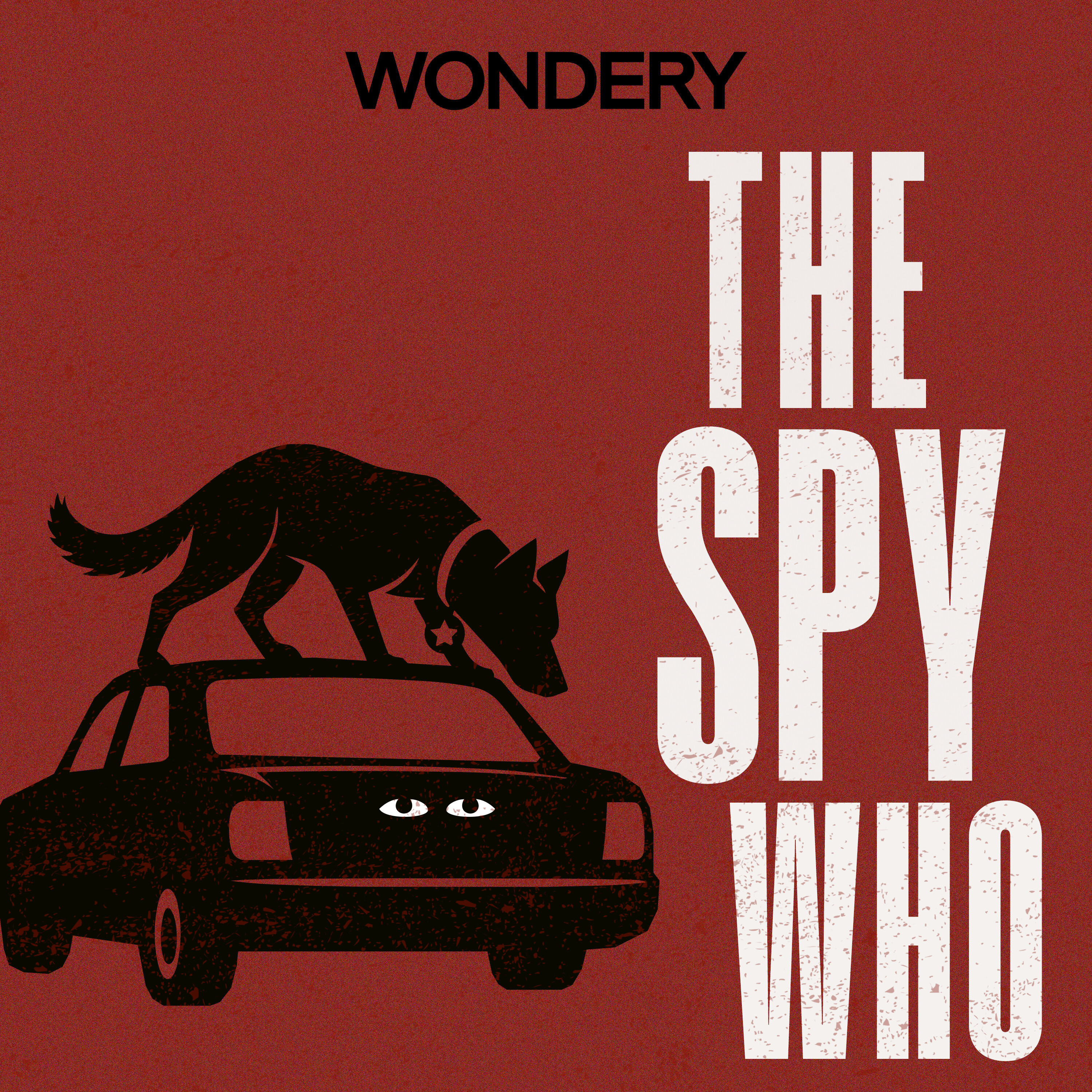
The Spy Who
Wondery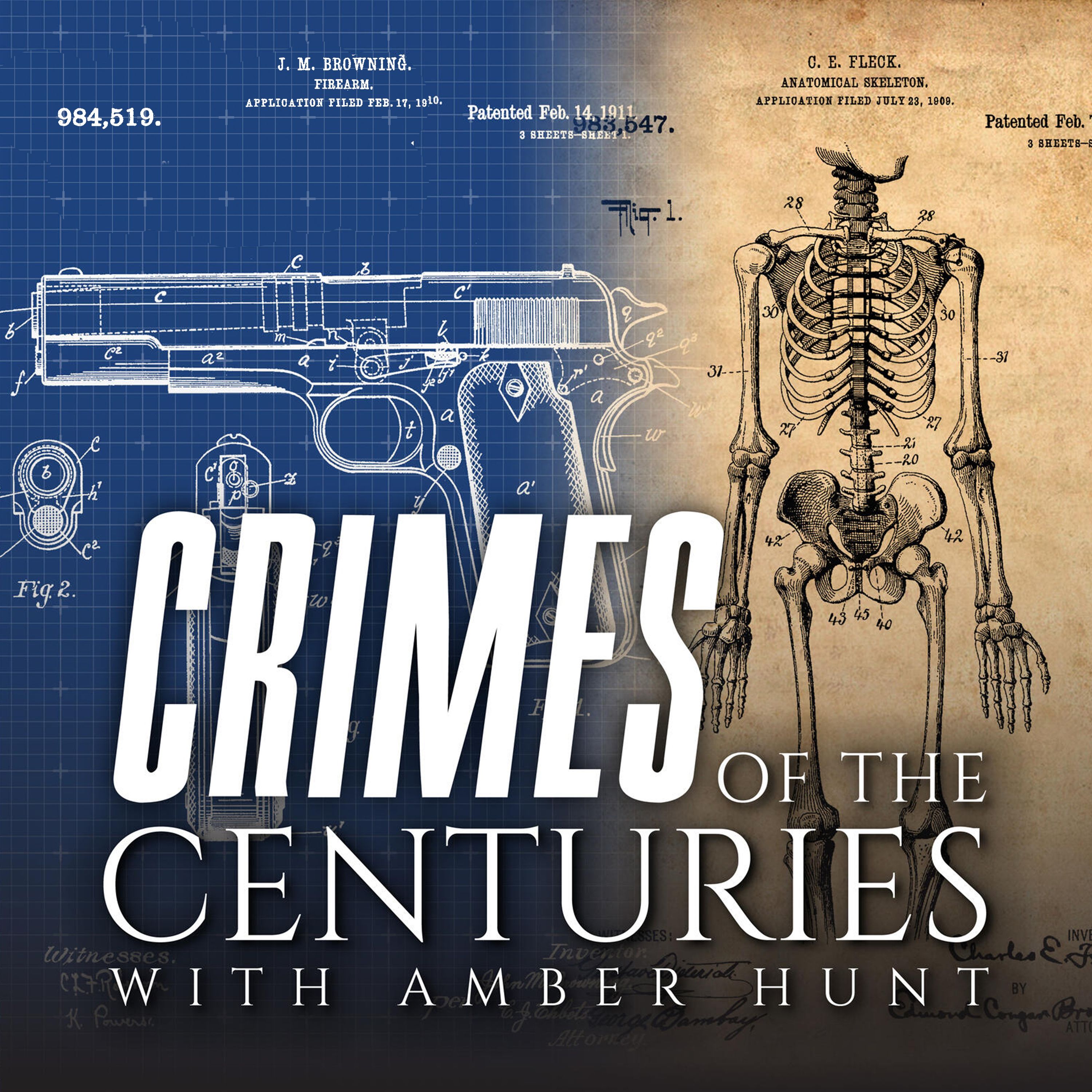
Crimes of the Centuries
Amber Hunt and Audioboom
Freakonomics Radio
Freakonomics Radio + Stitcher
DISGRACELAND
Double Elvis Productions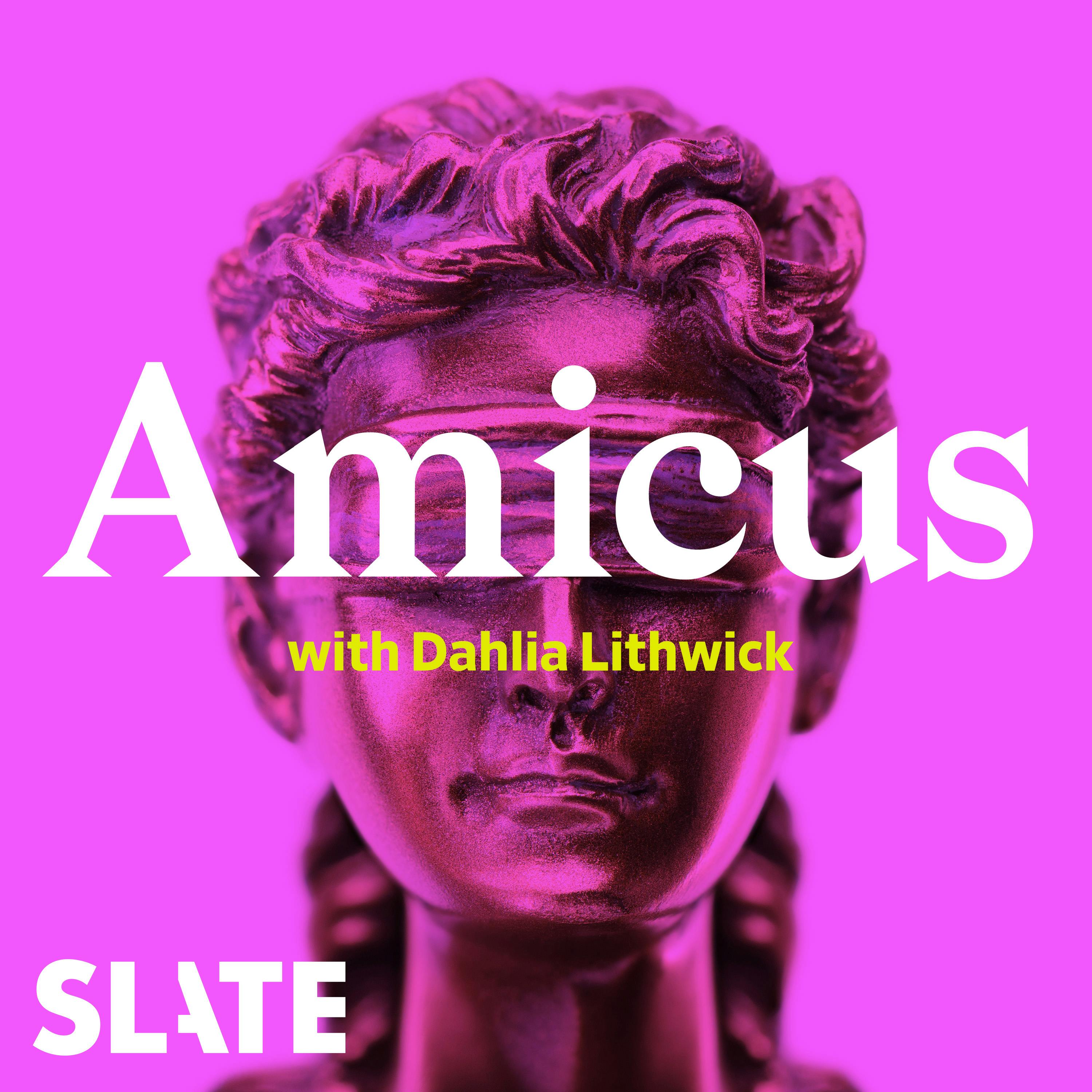
Amicus With Dahlia Lithwick | Law, justice, and the courts
Slate Podcasts
Decoder Ring
Slate Podcasts
Hidden Brain
Hidden Brain, Shankar Vedantam
Embedded
NPR
You Are Good
Sarah Marshall + Alex Steed

